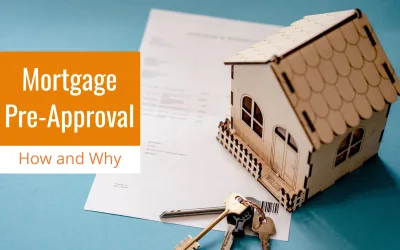One of the top questions we receive is, “How do I know if I can buy a house?” The most straightforward route is to have enough to buy the home outright. This does not work for the majority of us.
Since most of us require financing to purchase our homes, below is a quick overview of what is required to obtain a home loan. It really is simple, but simple doesn’t always mean easy. Every loan program, agency, and the lender will have their own guidelines borrowers must meet. The good news is most of them are within these four areas.
According to HUD’s old Handbook HUD 4155.1 , there are “Four C’s of Credit” to qualify for a loan. The four C’s are Credit history, Capacity to repay the loan, Cash assets available to close the loan, and Collateral. This is the simplest explanation as far as qualifying goes.
-
Credit History: A borrower’s credit report shows the lender the habits, history, and a current snapshot of a borrower’s past and current credit. This is very important to the lenders because they expect to get paid back when they fund a home loan, and past performance is an excellent indicator. Also, the best interest rates go to the borrowers with the best credit history.
-
Capacity: A borrower’s capacity to repay the loan includes a borrower’s income and employment history. This shows the underwriter that you can make the monthly payment and have a stable work history. As you can imagine, the simplest employment type to verify would be a salaried, W-2 employee with two years of stable employment. Other types, such as self-employed and commissioned income, require more documentation.
-
Cash Assets: A borrower’s cash assets available to close the home loan let the underwriter know several things. First, they have a history of living within their means and saving money. Second, the borrower can put the minimum amount on a property and cover the closing costs. Also, depending on the loan program and property, it is sometimes necessary to have several monthly payments worth of Reserves after closing to cover unforeseen emergencies.
-
Collateral: A borrower’s collateral refers to purchased or refinanced property. The property must be in good, livable condition with no safety concerns. The Government programs, FHA, USDA, and VA, have more strict guidelines. Also, since this is collateral, the home must be worth enough to meet the lender’s guidelines.
That is the basics of getting a mortgage! Just remember everything needs to be verified. Gone are the days of lenders taking a borrower’s word for anything. The underwriters will check and double-check everything.
To see if you qualify to buy a house or have any questions related to the Four C’s of credit, don’t hesitate to reach out to Capital City Mortgage.
First-Time Homebuyer Success
Embarking on the journey of purchasing your first home is a thrilling and sometimes daunting experience. As a first-time homebuyer, you may face challenges ranging from understanding financial jargon to navigating the complexities of the housing market. However, with...
What is the easiest home loan to get approved for?
Buying a home is a significant financial milestone, and choosing the right mortgage can make all the difference. Understanding the different types of home loans and their respective qualification criteria is crucial for prospective homebuyers. In this blog post, we'll...
What is a Mortgage Pre-Approval, and How Does it Work?
If you're in the market to buy a home, you've likely heard the term "mortgage pre-approval" thrown around. But what exactly does it mean, and how does it work? In this comprehensive guide, we'll break down everything you need to know about mortgage pre-approval, from...




